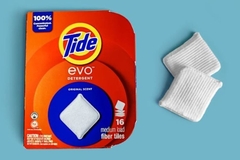Fighting acne with AI: Inside MetaNovas’ tech-driven peptides

MetaNovas uses artificial intelligence (AI), deep learning, and biomedical knowledge to create bioactive skin care ingredients, specializing in functional peptides.
Personal Care Insights speaks with Lun Yu, co-founder and CTO at MetaNovas, about the company’s functional peptides for acne, the technology behind them, and how it reduces animal testing while contributing to environmental sustainability.
“We believe the future of cosmetics lies at the intersection of biology and computation. By merging cutting-edge AI with molecular biology, we improve skin health while redesigning how ingredients are discovered, validated, and delivered.”
“Our goal is to create a more intelligent, effective, and sustainable future for skin care.”
Acne-fighting peptides
MetaNovas’s MetaPep platform uses generative AI to model, simulate, and optimize peptides for specific cosmetic functions, such as anti-inflammatory effects, collagen stimulation, or skin barrier repair.
Acne is caused by excessive sebum secretion and follicular blockage. Propionibacterium acnes (P. acnes) is the primary cause of skin infection and inflammation.
 Acne is caused by excessive sebum secretion and follicular blockage.Peptides offer a targeted, biomimetic approach (mimicking the body’s natural processes) to combating acne. The company says its anti-acne peptide MetaAMP33 regulates excessive secretion, reverses the growth of P. acnes, and relieves skin inflammation by suppressing inflammatory factors.
Acne is caused by excessive sebum secretion and follicular blockage.Peptides offer a targeted, biomimetic approach (mimicking the body’s natural processes) to combating acne. The company says its anti-acne peptide MetaAMP33 regulates excessive secretion, reverses the growth of P. acnes, and relieves skin inflammation by suppressing inflammatory factors.
“By integrating AI-predicted bioactivity, structure-function analysis, and in vitro screening data, MetaNovas is accelerating ingredient discovery while improving success rates over traditional methods,” explains Yu.
He further explains that, unlike harsh antibiotics or retinoids, peptides can be engineered to modulate specific pathways, such as inhibiting TLR2-mediated inflammation and disrupting acne-causing bacterial biofilms, without damaging the skin barrier. TLR2 is a cell receptor that recognizes harmful bacteria.
“Once applied, our acne-targeted peptides penetrate the skin’s upper layers and interact with receptors or microbial surfaces. For example, some peptides downregulate pro-inflammatory cytokines or reduce Cutibacterium acnes colonization. Others may act on sebaceous glands to rebalance oil secretion.”
“The result is clearer skin with reduced redness, fewer lesions, and better long-term tolerance,” says Yu.
Reduced animal testing
The company says that MetaAMP33 provides high efficacy at a lower cost than traditional products while being resistant to high temperatures and maintaining high bioactivity.
Yu explains that MetaNova’s AI-driven design process eliminates a large portion of the traditional trial-and-error in cosmetic R&D.
 Yu says AI can provide reduced animal testing and raw material waste.“This means fewer animal tests, reduced raw material waste, and minimal lab-scale production during discovery.”
Yu says AI can provide reduced animal testing and raw material waste.“This means fewer animal tests, reduced raw material waste, and minimal lab-scale production during discovery.”
“Our peptides are biodegradable and can be produced via precision fermentation, which avoids heavy solvent use or environmentally intensive extraction from animal tissues,” says Yu.
MetaNovas believes the future of cosmetics will be shaped by innovations targeting scalp health, skin longevity, and microbiome regulation.
“In these areas, we are building peptide and bioactive pipelines grounded in mechanistic biology and AI-driven design,” says Yu.
A recent study argued that AI technologies such as organ-on-a-chip may have the power to eliminate animal testing in personal care products. This would allow for more ethical toxicity evaluation and faster results compared to traditional cosmetics testing.
Beauty tech boom
The beauty industry increasingly incorporates technology, especially AI. Revieve says the movement helps brands optimize formulation processes and ingredient innovations.
 Several companies are innovating with AI for personalized beauty solutions.Several companies are innovating with AI for personalized beauty solutions. The biotech firm Debut recently leveraged its AI platform, using over 10,000 molecules to understand molecular structures in skin cells. The platform is trained by data engineers to recognize patterns, enabling the company to find the right molecule to activate specific gene responses.
Several companies are innovating with AI for personalized beauty solutions.Several companies are innovating with AI for personalized beauty solutions. The biotech firm Debut recently leveraged its AI platform, using over 10,000 molecules to understand molecular structures in skin cells. The platform is trained by data engineers to recognize patterns, enabling the company to find the right molecule to activate specific gene responses.
Last week, Revive launched the “world’s first” AI-powered skin care and nutrition advisor with Dr. Simon Ourian. The tool provides a personalized digital consultation, analyzing skin and wellness goals using a selfie and a short questionnaire before generating product recommendations.
Experts also recently told us that AI techniques are birthing new ingredients, hold the potential to address the skin at a DNA level, and can provide personalized beauty at a “speed and accuracy never seen before.”













